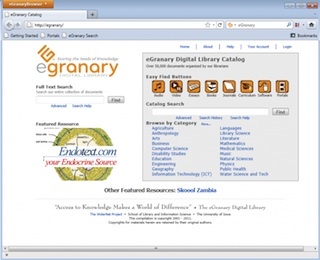The goal of the University of Iowa’s WiderNet Project is to deliver educational information to underserved places, so it’s fitting that the 500th eGranary Digital Library was installed this summer in the remote island village of Lamu, a UNESCO World Heritage Site off the coast of Kenya in East Africa.

The 500th installation is a significant milestone for the 11-year-old program. Since its inception in 2000, the WiderNet Project has installed eGranaries worldwide in hundreds of educational institutions, health care facilities, and libraries in communities much like Lamu. The eGranary Digital Library has made educational information available to almost 2 million people without Internet access.
Lamu is Kenya’s oldest continuously-inhabited town.
“It took several hours by car, a small airplane, and a hand-hewn wooden boat to get there,” says WiderNet director Cliff Missen. The island is unique because of its well-preserved ancient Swahili architecture; visiting is very much like stepping backwards through time. “There are no cars on the island, just donkeys and lots of streets so narrow I could not spread my arms out,” Missen says.
The installation at the historical site was sponsored by the U.S. Embassy in Nairobi.
“We are thankful for the great work WiderNet is doing and that these resources can be accessed without the worry of inappropriate materials,” says George Kamau, director of the embassy’s Reference Center.
Missen spent three days on the island training teachers and librarians while installing the eGranary at the American Corners Library.
Previously equipped only with the hit-or-miss Internet connectivity at the local cyber cafe, Lamu Town is now able to allow its community members access to 30 million educational resources free-of-charge without the need of the Internet or download delays. In addition, people can create their own websites and upload their own information onto the eGranary.
“The community is very lucky for these beneficial resources,” says Fatma Busaidy, manager of the American Corners Library.
Missen headed a workshop to introduce the digital library to the community and show locals how to utilize and maintain the resource.
“It’s not every day that I get to teach in a real stone fort in an ancient Swahili town,” Missen says, of Lamu Fort, the town’s most prominent historical landmark. “But it turns out the Lamu Fort was the only available place with enough room for our trainees.”
A few photos from the Lamu installation are available at www.widernet.org/press/500thegranary.